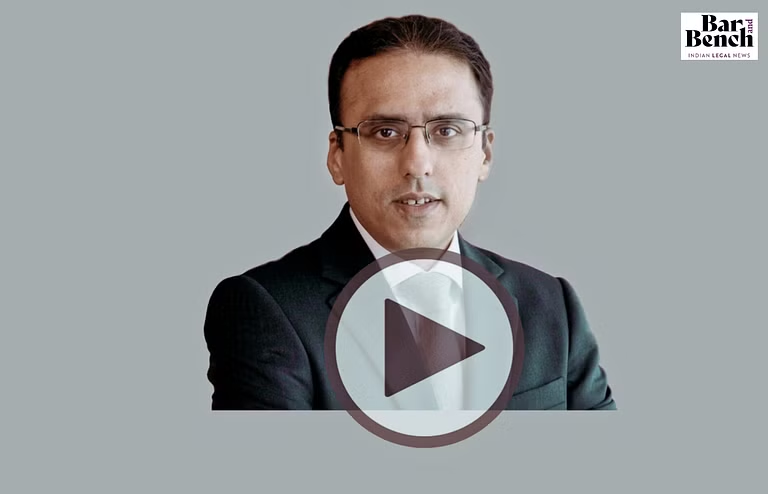In a move that could change the contours of the legal profession in India, the Bar Council of India (BCI) has allowed foreign lawyers and law firms to practice foreign law in India, subject to certain conditions.
The BCI has come out with the Bar Council of India Rules for Registration and Regulation of Foreign Lawyers and Foreign Law Firms in India, 2022 to enable international lawyers and arbitration practitioners to advise on foreign law in India.
With these Rules, the debate on whether the Indian legal market should be opened up to foreign lawyers and firms has been put to bed.
So what impact will it have on the profession in India? How are Indian lawyers reacting to such a move?
Here are the initial reactions to the unprecedented move.
Shuva Mandal, Anagram Partners

“Prima facie it appears, there are two gating conditions:
(1) Foreign law firms registered in India can practice only foreign country laws and not Indian law even in the case of corporate and M&A practice [Clause 8(2)(i) of the Rules];
(2) Indian laws firms/Indian lawyers in the corresponding foreign country are not disproportionately absent in such country. This is in addition to the principle of reciprocity.
There appears to be a principle of maintaining balance as per Clause 5(4).
Furthermore, as per Clause 8(2)(v), it appears that even Indian lawyers employed by foreign law firms in India, can only advise on non-litigious or foreign law issues. The language goes on to state that in fact, such Indian advocates cannot have any advantage of being an advocate enrolled in India.
Whilst these Rules codify the mode and style in which foreign law firms can operate in India, it remains to be seen how deep the liberalization will actually play out.”
Cyril Shroff, Cyril Amarchand Mangaldas

“Whilst the devil will lie in the detail, I think this is a progressive development. India’s legal market is ready for change and will grow. I welcome the opening up.”
Amit Kapur and Vivek Chandy, JSA

“1. This is a natural sequitur to India emerging as a hub for foreign investment and as a trading partner in the emerging global order.
2. Details of what aspects foreign lawyers/law firms shall be allowed to work on, and how they shall be governed, are yet to notified by BCI in consultation with the government. We expect that the same will ensure a level-playing field for Indian law firms and lawyers.
3. We believe that this will herald a new era where the profession will benefit with higher standards by interacting with foreign law firms and lawyers, besides giving better opportunities for Indian lawyers to work with international lawyers on international/multi-national projects and disputes.”
Haigreve Khaitan, Khaitan & Co

“We view the recently notified BCI Rules as a welcome development especially in the context of providing clarity to foreign lawyers and law firms about offering their foreign law expertise and services in India. The Indian legal market has come a long way in the past two decades and is now more globally relevant than ever before, and this development will entrench India more firmly in the global economy.
While we await the fine print that the BCI Rules contemplate, we look forward to collaborating even more closely with our peer lawyers from other countries to offer comprehensive legal services to our clients in India on cross-border mandates, right on their doorstep.”
Akil Hirani, Majmudar & Partners
“Reciprocity is a key criteria, i.e., only if an Indian advocate is allowed to practice in the jurisdiction of the foreign lawyer, will the foreign lawyer be allowed to practice foreign law in India. This will benefit foreign lawyers from jurisdictions like England and Wales, which has already granted reciprocity to Indian advocates.
Foreign lawyers who do not want to practice law in India under the new Rules can continue to advice on a ‘fly in and fly out basis,’ provided that such a practice does not, in aggregate, exceed 60 days in any period of 12 months.
Overall, this is a step in the right direction. Foreign investors looking to invest in India will derive more comfort if their foreign law firms are on the ground in India. It will also open up the market for senior, dual qualified Indian lawyers, who will be able to come back to India and lead the foreign law practice initiatives for their foreign law firms.”

“As regards Indian law firms, there should be a limited impact because foreign clients and foreign lawyers will need to take the services of Indian lawyers for, among others, Indian law transactions, opinions and litigation matters.
The BCI Rules are silent on whether exclusive alliances are permitted between Indian law firms and foreign lawyers with each entity practicing their respective laws. In our view, this should also be clarified.”
Mohit Saraf, Saraf & Partners

“1. I am confident that the change in regulations will help professionalize the Indian law firms and will make them more innovative and progressive.
2. Law firms bring with them their clients. In my view, this will significantly help the Indian economy attract investments which we need in order to move from US $3.2 trillion to US $10 trillion in the next 10-12 years. In the same period, I expect the legal market to grow by 3-4 times, and therefore there will be enough for everyone. Anyway this growth cannot be just handled by the present players.
3. Though on one hand, competion for Indian law firms will increase, but on the other hand, Indian law firm offerings too will improve and so will be their ability to charge comparable prices.
4. Opening up of the market is on reciprocal basis. Anyway, most relevant jurisdictions already allow Indian lawyers and Indian law firms to open offices and practice Indian law and also practice foreign law using lawyers who are permitted to practice foreign law.”
Pallavi Shroff, Shardul Amarchand Mangaldas

Rajesh Narain Gupta, SNG & Partners
“Entry of foreign law firms will change the landscape for law firms in India. This would overall support in a big way the ambition of India to be more visible and valuable in a global context, especially on international trade and commerce.
This will be a gamechanger for the mid-size firms and will also help the law firm in India to achieve more efficiency in talent management, IA, technology, domain knowledge in a global context, and management.”

Sridhar Gorthi and Nishant Parikh, Trilegal

“We are examining the Rules notified by the BCI allowing foreign lawyers and foreign law firms to practice foreign law in India, subject to various conditions. Trilegal has always welcomed any move to promote the growth of the legal profession in India. The demand for legal services in India is growing exponentially and the needs of Indian multi-nationals for foreign law advice needed to be suitably addressed.
We are also excited by the opportunities these regulations could create for Indian law firms to support their clients in international markets.”
Abhishek Malhotra, TMT Law Practice
“While the conversation on opening up the legal services sector to foreign firms has been ongoing for a long time now, this is certainly a belated but welcome and significant development. The areas of impact to the legal profession will include access to international best practices, a more professional and accountability based approach to service delivery, and further enhancement in the manner the world looks at India and our legal system.”
Abhijit Joshi, Veritas Legal

“Long awaited progressive move which will develop more centres of excellence in the country.”
Vinayak Burman, Vertices Partners

“Opening up a law practice in India to foreign lawyers will create opportunities for tie-ups and partnerships. It is likely to pave the way for potential consolidation, especially for firms dealing in the cross-border M&A practice in particular.
A lot of Indian firms with sound functional fundamentals in the PE/VC space per se (not based on flip structure transactions which are gradually seeing the reverse trend) are as it is creating a mark in the market. Also, the dollar billing element is something that makes Indian founders very sensitive and conscious from a price point perspective. Over a point of time, this would create a potential exit and even alignment structures for niche firms but to see an actual impact, this will have to be played through with vintage.”



